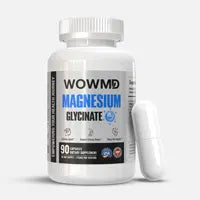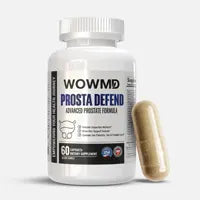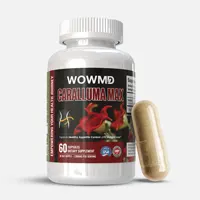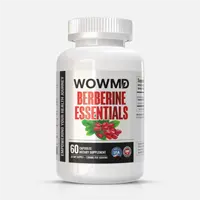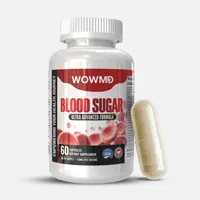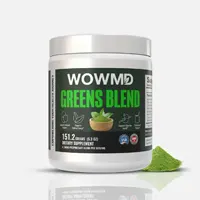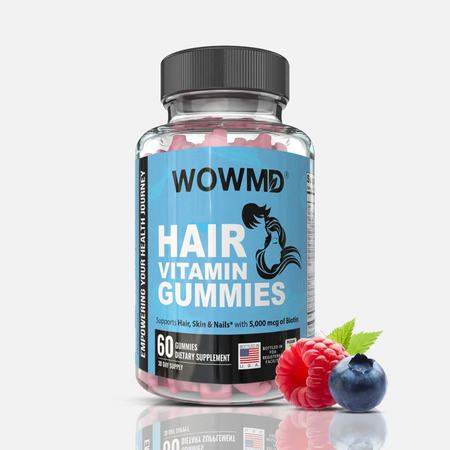Vitamin C vs Calcium — What’s the Difference?
Two essential nutrients with very different roles: vitamin C supports immunity and skin, while calcium builds and preserves strong bones. Learn sources, doses, and how they work together.
Advertiser Disclosure: WOWMD independently vets all recommended products. If you purchase a featured product, we may be compensated. Learn why you can trust us.
You May Also Like
Popular Stories
- Superfood Greens Powder Uses & Recipes
- The Best Beef Tallow Products for Radiant Skin: A 2026 Guide
- Holy Basil : Ayurveda’s Herb for Balance, Immunity & Everyday Calm
- Best Gel Moisturizers for Hydration & Skin Care in 2026
- 7 Best Effective Supplements for Improving Bladder and Prostate Health in 2026
- 4 Best Cooling Gels for Skin and Body: Instant Refreshment and Relief
References
WOWMD follows strict sourcing guidelines to ensure the accuracy of its content, outlined in our editorial policy. We use only trustworthy sources, including peer-reviewed studies, qualified experts, and information from top institutions.
- Vitamin C (Ascorbic Acid) - StatPearls - NCBI Bookshelf https://www.ncbi.nlm.nih.gov/books/NBK499877/
- Overview of Calcium - Dietary Reference Intakes for Calcium and Vitamin D - NCBI Bookshelf https://www.ncbi.nlm.nih.gov/books/NBK56060/
- Vitamin C – The Nutrition Source https://nutritionsource.hsph.harvard.edu/vitamin-c/
- Physiology, Calcium - StatPearls - NCBI Bookshelf https://www.ncbi.nlm.nih.gov/books/NBK482128/
- Vitamin C | Linus Pauling Institute | Oregon State University https://lpi.oregonstate.edu/mic/vitamins/vitamin-C
- Calcium – The Nutrition Source https://nutritionsource.hsph.harvard.edu/calcium/
- Calcium - Health Professional Fact Sheet https://ods.od.nih.gov/factsheets/Calcium-HealthProfessional/
- Comparative Effectiveness of Ascorbic Acid vs. Calcium Ascorbate Ingestion on Pharmacokinetic Profiles and Immune Biomarkers in Healthy Adults: A Preliminary Study https://www.mdpi.com/2072-6643/16/19/3358
- Vitamin C - Dietary Reference Intakes for Vitamin C, Vitamin E, Selenium, and Carotenoids - NCBI Bookshelf https://www.ncbi.nlm.nih.gov/books/NBK225480/
- Is Excess Calcium Harmful to Health? - PMC https://pmc.ncbi.nlm.nih.gov/articles/PMC3257663/
 Alpha Man Power Pack
Alpha Man Power Pack All-Day Fat Burn Trio
All-Day Fat Burn Trio Better Immunity Bundle
Better Immunity Bundle  Calm & Sleep Duo
Calm & Sleep Duo Cognitive Health & Vision Combo
Cognitive Health & Vision Combo Complete Weight Loss Bundle
Complete Weight Loss Bundle Core Vitality Trio
Core Vitality Trio Energy Booster Combo
Energy Booster Combo Focus Fuel Trio
Focus Fuel Trio Glow & Balance Duo
Glow & Balance Duo Health Balance Trio
Health Balance Trio Heart Care Bundle
Heart Care Bundle Joint Health Support Combo
Joint Health Support Combo Men's Immunity & Prostate Health Bundle
Men's Immunity & Prostate Health Bundle Metabolism Boost Duo
Metabolism Boost Duo Natural Skin Care Bundle
Natural Skin Care Bundle Peak Performance Duo
Peak Performance Duo Relax & Recharge Duo
Relax & Recharge Duo Skin Detoxification Bundle
Skin Detoxification Bundle Smart Energy Trio
Smart Energy Trio Stress + Energy + Wellness Combo
Stress + Energy + Wellness Combo  Total Burn Ignite Trio
Total Burn Ignite Trio Total Harmony Pack
Total Harmony Pack Workout Supplements Combo
Workout Supplements Combo